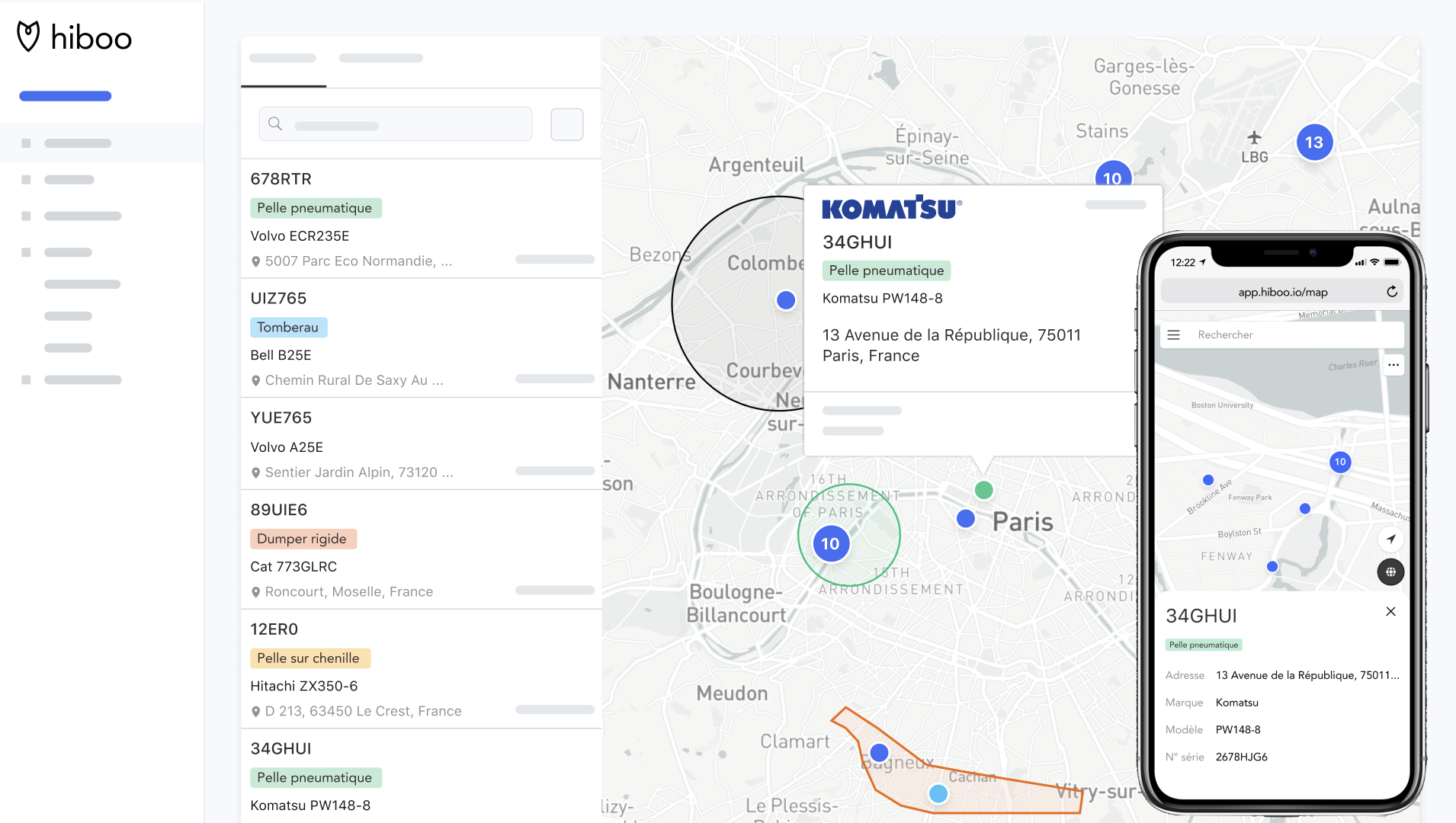Tracking mobile industrial equipment in real time with Hiboo
The Hiboo start-up was incubated at Télécom Paris and provides a platform to help companies better manage their mobile assets: equipment, merchandise, vehicles etc. This solution is now widely used in the construction industry.
In 2016, the start-up Hiboo, which was incubated at Télécom Paris at the time, created a connected device in order to bring this type of equipment to the construction industry. But the industry was already facing an overwhelming amount of unused data and resolving this problem was not one of its top priorities. Instead, the sector sought to solve an ongoing problem – although it generated significant annual revenue, its profit margins remained low.
“We started out with the idea that one of the best ways to optimize this profit margin was to better understand the equipment’s activity using the available data,” explains François Jacob, co-founder of Hiboo. The start-up therefore made a radical shift to become a super aggregator of data sources. This transformation gave rise to its current platform, which helps companies manage their operations more effectively.
Hiboo helps collect and sort data
On paper, all construction companies face the same problems when it comes to mobile industrial assets: renting equipment, inventory, time spent on site, consumption, identifying machine problems etc. But on site, they lack an overall vision, and taking inventory of their equipment takes a long time and it is not always very thorough. Hiboo collects information provided by three categories of equipment: connected vehicles, unpowered equipment, and non-connected equipment containing an onboard computer.
In the construction industry, companies may manage thousands of pieces of equipment at the same time. Such equipment may include some twenty brands of connected vehicles. However, if a company wants to understand how each brand fits into their overall equipment operations, users must log into each brand’s individual platform to retrieve this information, which is impossible to do on a daily basis.
Hiboo solves this problem by aggregating key data such as GPS coordinates, energy consumption and machine error codes by logging in to all of the manufacturers’ individual servers in the client’s place. The data are then harmonized before being automatically analyzed by ‘workers’. These robots isolate outliers, such as a vehicle that has consumed 2,500 liters of fuel in one day. The process is then checked by engineers at Hiboo who send a final report to the clients. Users may therefore access all operations inputs and outputs for connected equipment on a single website.
Solutions hidden in data
Hiboo also equips unpowered equipment such as crane parts, dumpsters and trailers with connected devices that communicate via low-frequency networks. They are energy-efficient, and make it possible to obtain GPS coordinates and track equipment’s activity over a number of years. The information is sent to Hiboo using traditional telephone networks. With the help of a partner, the start-up also equips non-connected vehicles with devices in order to collect the information obtained in their on-board computers. “So we provide equipment managers with a comprehensive solution for practically all of their assets,” adds François Jacob.
All of this data is made available to users on the Hiboo platform. But it can also be integrated in applications such as invoicing software. The start-up helped the Swiss company Bernasconi shorten its invoicing process by one week every month by eliminating paper invoices. And a major industrial equipment rental company was able to save up to 700 billable days a month by identifying the over-usage of its equipment. “By processing data from the field, we can help companies revolutionize asset management, maintenance, assignment, invoicing etc.” explains François Jacob.
A versatile technology
Hiboo wishes to go further in leveraging data, in particular machine error codes and their severity levels. “Using this data and maintenance records, we want to provide predictive maintenance so that we can predict the probability of a machine breaking down,” explains François Jacob. This could involve a failure on a compressor, an oil leak, a motor with low voltage etc. To do so, the start-up team combines information about the errors with the computerized maintenance management systems (CMMS) already used by companies to monitor machines and keep them in good working order.
Although originally intended for the construction industry, Hiboo’s solution can be used for other applications, given its ability to control the flow of data between different networks. For example, the start-up will be covering the Dakar rally in 2020. “By connecting to Marlink, the satellite communication network used to track the rally participants, we can collect information about the various vehicles and track their performance on our platform,” explains François Jacob.
Learn more about Hiboo





Leave a Reply
Want to join the discussion?Feel free to contribute!